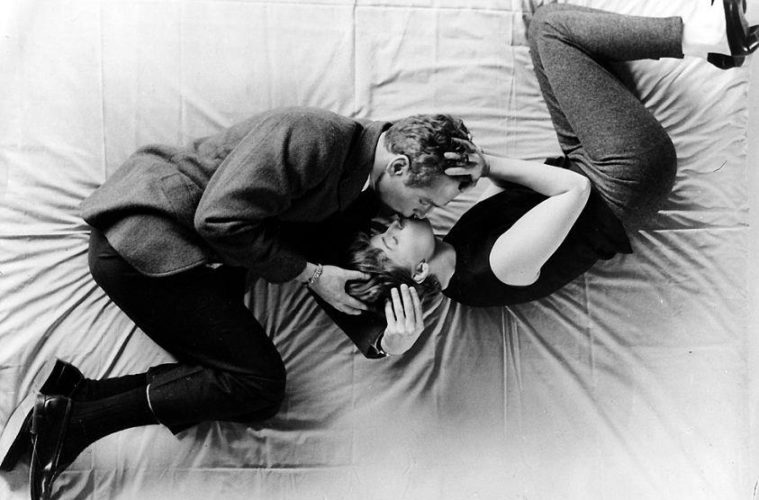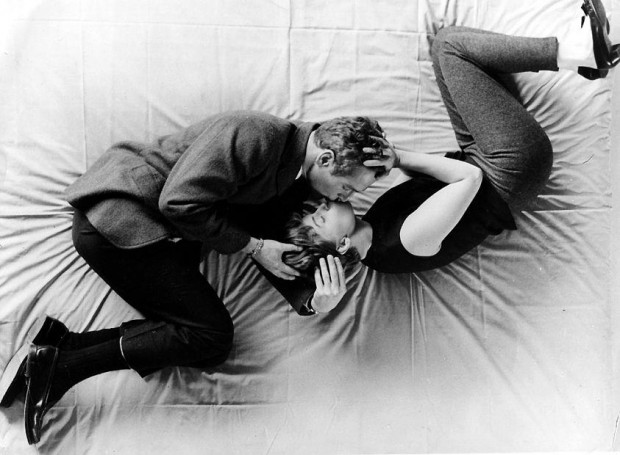
Beginning tomorrow, film fans and filmmakers alike will convene for one of cinema’s finest events, the Cannes Film Festival. Despite The Great Gatsby kicking things off, this year’s 66th edition is the perfect counterpart to the summer blockbuster season, showcasing a variety of films that are near the top of our most-anticipated of the year list.
Ahead of the festival, which sees a jury headed by Steven Spielberg, we’ve set out to rundown the 20 films that are highest on our radar. We’ll be sticking to premieres only, so if you want our takes on a few Sundance titles that are making their way to France just click on the respective titles: Fruitvale Station, Ain’t Them Bodies Saints and Magic Magic. For everything else, check out the list below in alphabetical order and let us know what you are most looking forward to in the comments.
All Is Lost (J.C Chandor)
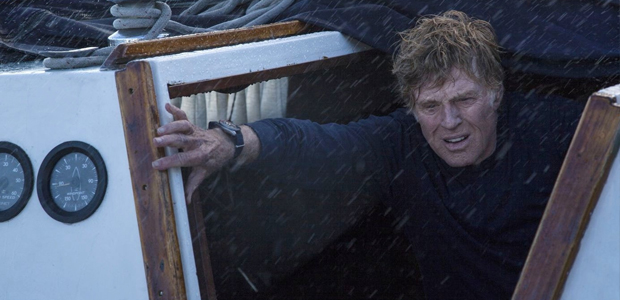
Robert Redford is a smart, smart man. Not only does he spearhead the Sundance Film Festival, but he shapes the talent he brings there and tags along when it comes to future projects. We recently got the news that he’s attached to the next work from Ain’t Them Bodies director David Lowery and this year’s Cannes will see his collaboration with another recent talent. Coming off his fast-talking financial thriller Margin Call, director J.C. Chandor is going boldly and directly into the opposite direction with All is Lost. Led solely by Redford, the film follows our lead character at sea braving the elements and there’s reportedly zero lines of dialogue — excited yet? Check back after its May 22nd premiere when all will be revealed. – Jordan R.
The Bastards (Claire Denis)
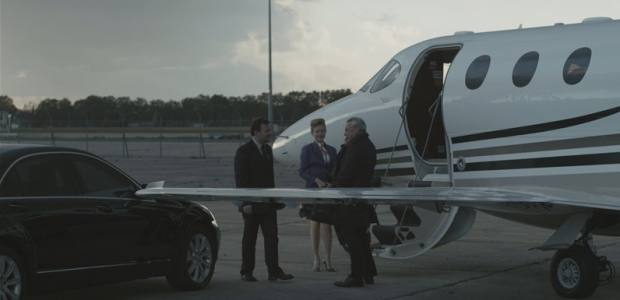
More than a couple of years out from White Material — what was, to this writer’s mind, an underwhelming effort — one of modern cinema’s most revered names has roared back into the cineaste spotlight. Rundowns promise something a little juicy in The Bastards, but nothing amongst Denis’s intoxicatingly tactile filmography could be respectfully illustrated via mere words; this is an artist of sounds and images, the type who feels primarily concerned with how they enrich one another while spinning a narrative along the way. In The Bastards, let’s hope these pieces can converge as forcefully as her finest hours. – Nick N.
Behind The Candelabra (Steven Soderbergh)
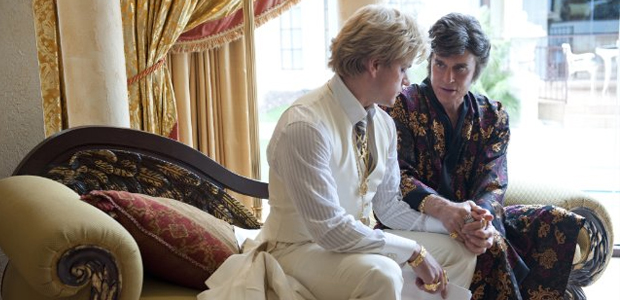
After years of development, Steven Soderbergh’s Liberace biopic finally hits the big screen, and its subject matter is no less interesting. The late entertainer was synonymous with excess, a fact that isn’t lost on the director; from the looks of the trailer and stills, there are more than enough colorful capes, bejewelled suits and frothy stage shows to go around. Michael Douglas, an actor best known for his hyper-masculine roles in films such as Wall Street and Basic Instinct, should garner the most attention as he tackles playing the flamboyant, secretly gay piano virtuoso. However, the unorthodox casting choices don’t end there, as Matt Damon, Dan Aykroyd and Rob Lowe also contribute to telling the true story of Liberace’s relationship with his young chauffeur. – Amanda W.
The Bling Ring (Sofia Coppola)
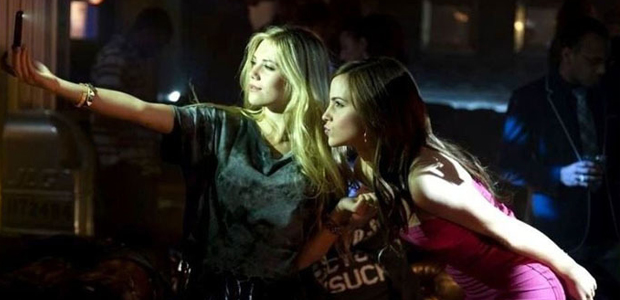
I mentioned on a recent episode of our podcast that Sofia Coppola’s The Bling Ring (due to hit theaters on June 14) is my most-anticipated movie of the summer, so it’s hardly a surprise that it’s also among the Cannes titles I’m most interested in gauging (even if the film was relegated to the Un Certain Regard section). Coppola is easily one of my favorite working American filmmakers: those who trivially dismiss her for only making movies about whiny rich people have apparently failed to notice the fact that her four features to date have employed vastly diverse, excitingly different aesthetics, her eye and ear changing and shifting with each passing film. (There is, too, the more essential point that great directors are always grappling with parallel themes and interests.) The movie has some sentimental value as well: it’s the last credited work of the late cinematographer Harris Savides. (The Bling Ring’s second credited lenser, Christopher Blauvelt, who shot Meek’s Cutoff, is no slouch in his own right.) It will be intriguing, too, to see where the film falls on the sun-drenched spectrum of 2013 movies about the American dream: from Harmony Korine’s Spring Breakers to Michael Bay’s Pain & Gain, it’s clearly the most pervasive theme of the year so far. – Danny K.
Blood Ties (Guillaume Canet)
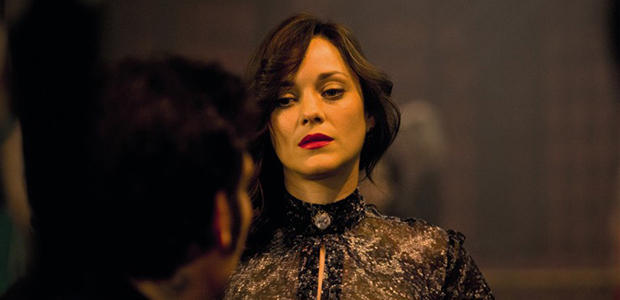
After crafting the taut thriller Tell No One, director Guillaume Canet is returning to crime drama territory with his English-language debut and he’s set to launch the project at Cannes Film Festival. Blood Ties sees the director going back to 1970s Brooklyn with the talented cast of Rust & Bone stars Matthias Schoenaerts and Marion Cotillard, as well as Zoe Saldana, Clive Owen, Billy Crudup and James Caan. The remake of a 2008 thriller follows two brothers who are different sides of the law that team together and although it’s screening out of competition, we hope it’s a worthy Hollywood break-out for Canet. – Jordan R.
The Congress (Ari Folman)

Ari Folman’s The Congress would be enticing based on its pedigree alone. Not only is this Folman’s first feature since the fantastic animated drama Waltz with Bashir, but it’s also based off a short story, The Futurological Congress, by sci-fi master Stanislaw Lem (Solaris) and boasts a cast that includes Robin Wright playing a fictional version of herself with Kodi Smit-McPhee, Danny Huston, Harvey Keitel and Paul Giamatti backing her up. The premise, about an actress who sells her digital likeness to Hollywood and finds herself occupying a virtual reality future world, is the kind of potent, mind-bending fare that can be exciting when in the hands of a legitimate artist. All of that should place The Congress at the top of any Cannes must-see list, but the film’s stunning new trailer puts it in another category all together. The live-action pieces are lush and as elegantly structured while the dream world is clearly conjured with wild abandon, boasting surreal takes on classics like Dr. Strangelove and introducing an animated universe that looks like a fusion of Tex Avery and Satoshi Kon. For those who yearn for new sights and thoughts to provoke the mind, The Congress is likely one of the most coveted movie events of the year. – Nathan B.
The Dance of Reality (Alejandro Jodorowsky) and Jodorowsky’s Dune (Frank Pavich)
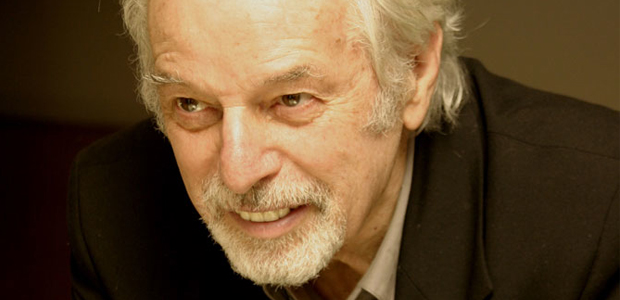
The Cannes line-up may be filled with a variety of exciting filmmaking talent from newcomers to seasoned veterans, but perhaps the event we’re most looking forward to is the return of the 84-year-old Alejandro Jodorowsky. The surrealist master is set to debut his first film in nearly a quarter of a decade, The Dance of Reality. While plot details are scarce, it’s based on his own autobiography of the same name. As a bonus, we’re also going to get a look inside his failed attempt to bring Dune to the big screen, thanks to Frank Pavich‘s latest documentary. – Jordan R.
The Great Beauty (Paolo Sorrentino)

Finally dumped into theaters last last year after a Cannes 2011 bow, Paolo Sorrentino‘s bizarre Sean Penn-led English-language debut This Must Be the Place failed to connect with most audiences and critics. However, it reconfirmed that the Italian director can still conjure up a visual treat and now he’s returning to the festival, heading back to his native land. The Great Beauty is said to be a Federico Fellini-esque look at a journalist (played by Paolo Sorrentino) who attempts to reflect on his youth in Rome. If it matches up to even a portion of Fellini, it will no doubt be a must-see. – Jordan R.
The Immigrant (James Gray)
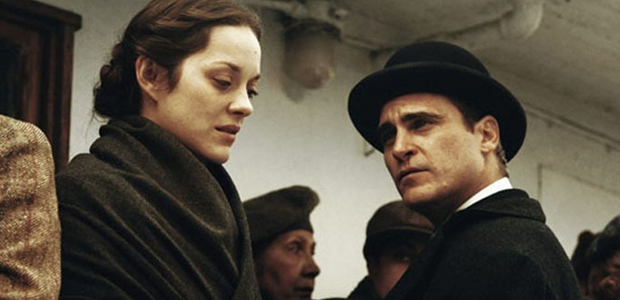
After a long wait and a variety of name changes, the next work from James Gray will finally premiere in a matter of days. With a sweeping, yet intimate style, we’ve long been a fan of the director and we hope this drama is the one that gets deserved attention. Set during the 1920s, The Immigrant features Marion Cotillard as Sonya, a Polish immigrant who turns to prostitution during her voyage to America in order to buy food and medicine for her ill sister. Upon landing, she’s tricked into a life of burlesque and vaudeville by a predatory sleaze named Bruno (Joaquin Phoenix). Jeremy Renner plays Bruno’s cousin, Orlando, a magician who tries to save Sonya and reunite her with her sister who is being held on Ellis Island. Early buzz indicates its a strong dramatic work, so check back for our review from Cannes. – Jordan R.
Inside Llewyn Davis (Ethan Coen, Joel Coen)

For yours truly, a Coen brothers movie set amidst the early ‘60s folk scene has, in its very existence, hit the jackpot in personal interests. Were I not so endeared toward one or the other — i.e., if I actually were as cold and dead on the inside as some would have you believe — it remains hugely difficult not to raise an eyebrow at what’s put out there: an eclectic onscreen assemblage — Justin Timberlake and F. Murray Abraham aren’t exactly a common mental pairing — lovely cinematography (complete with what appears to be a detailed recreation of the period), and signs of a soundtrack mixing old classics with entirely new, homaging tunes. Happening to love these two pieces binding together Inside Llewyn Davis, though, this is a Cannes title with a pedigree matched by few others. Now, about its December release date… – Nick N.
Jimmy P: Psychotherapy of a Plains Indian (Arnaud Desplechin)
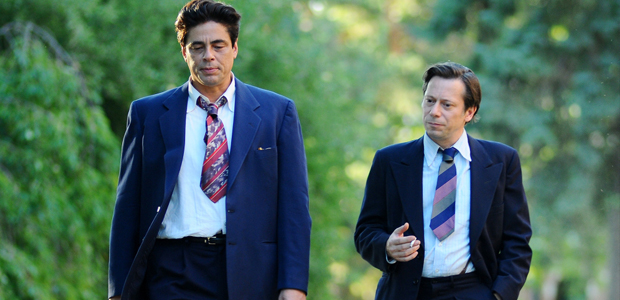
Lots of movies headed to Cannes pride themselves on the acting showcases they contain, but few have me as intrigued as Jimmy P., that boasts the duo of Benicio Del Toro and Mathieu Amalric, under the intimate direction of France’s Arnaud Desplechin. Sure, Del Toro and Amalric may not be big name headliners in everyone’s book, but they are intense and versatile actors who aren’t often given opportunity to headline a juicy drama like this one. Based off of a real-life friendship, the film follows Del Toro’s Jimmy Picard (no relation to the bald starship captain), a Native American WWII vet who returns to America suffering symptoms of a mysterious illness. When the doctors can’t figure the problem, Amalric’s George Devereux, an anthropologist from France, is called in to examine Jim and the two men bond. The framework affords the two actors ample opportunity to play off of each other, and if the script and direction are as exciting and palpable as Desplechin’s 2008’s A Christmas Tale, then one can expect to hear Jimmy P. and its ensemble mentioned again come Oscar time. – Nathan B.
Last Days On Mars (Ruairi Robinson)
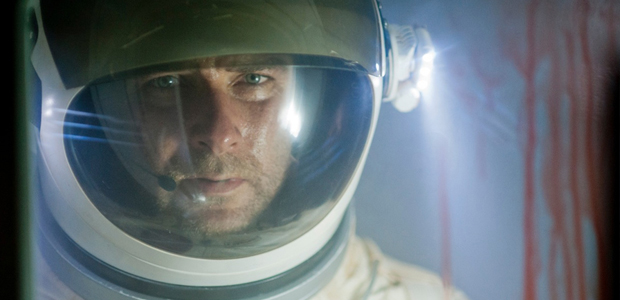
Although this first time feature-length film from director Ruairi Robinson may not come with the clout or promise of other Cannes fare, it’s got the potential to be a pleasant surprise. For one thing, it’s an honest-to-goodness genre movie, with an interesting tier of second-string actors like Liev Schrieber, Romala Garai, Olivia Williams and quirky movie luck-charm Elias Koteas playing astronauts who must contend with a mysterious and malicious force on the planet’s surface. What has me anxious to lay eyes on it, though, is that an early draft of the script by Clive Dawson–drawn from the short story The Animators–was an exciting and character-driven romp through familiar sci-fi and horror tropes. Couple that with Robinson, who has demonstrated a knack for first-rate visuals, and all the ingredients are here for a proper good time at the cinema. Yes, the lingering stench of Mission to Mars, Red Planet and Ghosts of Mars is still in the air, but let’s not forget that the big rouge orb was also the setting for one of the finest sci-fi novels ever written, Ray Bradbury’s The Martian Chronicles. – Nathan B.
Like Father, Like Son (Kore-eda Hirokazu)
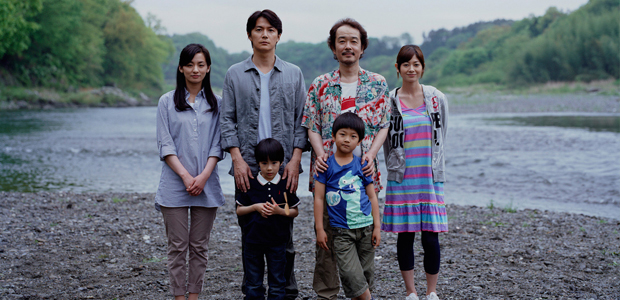
Critically acclaimed Japanese filmmaker Kore-eda Hirokazu is still somewhat of an unknown presence with western audiences. Having made heart wrenching yet endearing films such as Nobody Knows and Still Walking, his style often evokes comparisons to Ozu and Mizogouchi but within a contemporary context. This neo-classical style can be hit or miss, but with Like Father, Like Son Hirozaku has a chance to subvert the official competition with a potential Palme D’Or. Billed as an examination of the essence of fatherhood, the film poses the question of whether you would choose your natural born son or the son you believed was yours after spending several years raising him. Whether the drama proves to be overly dramatic will be tested by tone, but with a proven track record Hirokazu could be primed to surprise both the jury and audiences. – Raffi A.
Michael Kohlhaas (Arnaud Des Pallières)

Sure, a historical epic set in the 1600’s, based off a novella written in the early 1800’s, doesn’t necessarily suggest fresh and exciting but there’s plenty of promising elements in Pallières’s Michael Kohlhaas. A French-German co-production, Kohlhaas has the benefit of telling an interesting slice of history, with the titular character being a Brandenburg horse trader whose animals are confiscated by the government, prompting him to launch protest and eventually terrorism against the then Holy Roman Empire. Mads Mikkelsen, last year’s Best Actor winner at Cannes for The Hunt, has been having a prosperous run as of late and fans of Valhalla Rising will no doubt enjoy seeing Mads in period adventure garb again. Exciting faces like Denis Lavant (Holy Motors), Bruno Ganz (Downfall), and Sergi Lopez (Pan’s Labyrinth) round out the edges of the cast, and lenser Jeanne Lapoirie should deliver an exquisitely lovely picture. The fact that the film was plucked for Competition suggests that there’s possibly more here than meets the eye. – Nathan B.
Nebraska (Alexander Payne)
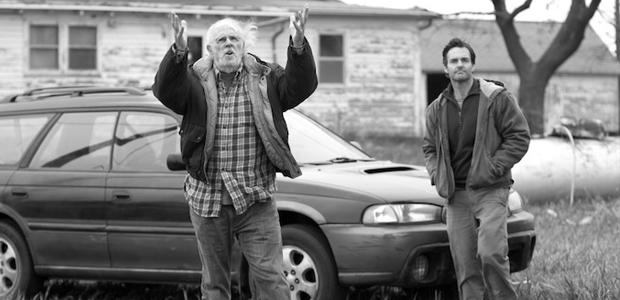
In terms of Oscar nominations (five, including a win for Best Adapted Screenplay) and box-office revenue (over $175 million worldwide), it’ll be difficult for Alexander Payne’s modest-seeming black-and-white drama to surpass the success of his previous film, the George Clooney-starring The Descendants. But the comparatively low-key trappings of Nebraska, at least to this writer, only make it all the more alluring: though Paramount has already treated the film to an Oscar-friendly November 22 release date, the movie, on paper, doesn’t read like a typical awards-garnering endeavor. The against-type casting of Will Forte, for one thing, will perhaps invite preconceived skepticism in some corners. Add in the black-and-white aesthetic—which is a wonderful choice for Payne, whose films are normally visually ordinary—and Nebraska starts to take on the aura of a very personal, homegrown thing. (The movie was shot on-location in Montana, Wyoming, South Dakota, and, of course, the titular state.) When asked recently in USA Today why he decided to abandon color, Payne offered nothing resembling an astute, deeply considered response (“I think it’s cool. It just felt like the right thing to do.”), but it’s that brand of quiet instinct that has me eagerly anticipating the film. – Danny K.
Only God Forgives (Nicolas Winding Refn)
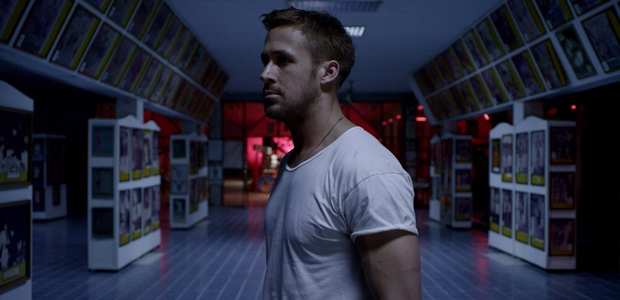
Ryan Gosling broadened his range to play director Nicolas Winding Refn’s cold blooded killer in Drive, a move that led to one of the most memorable performances of its respective year. The two reteam for Only God Forgives, a revenge tale set against Bangkok’s criminal underground. The film continues Refn’s fascination with violent, but principled men with the story of a corrupt Thai boxing club manager (Gosling) who seeks out his brother’s killer at the request of his mother (played with Lady Macbeth-like intensity by Kristen Scott Thomas). The trailers and clips we’ve viewed so far promise plenty of the same stylish brutality that defined Drive, all set to a signature electronic soundtrack by composer, Cliff Martinez. It doesn’t hurt that Gosling takes on another dead-eyed anti-hero who speaks more with his fists than with his words. – Amanda W.
Only Lovers Left Alive (Jim Jarmusch)

It’s a Jim Jarmusch-directed vampire movie starring Tilda Swinton, Tom Hiddleston, John Hurt and Mia Wasikowska — do you honestly need more? One of the few freewheelers independent American cinema can still claim as its own has a mysterious way with cinematic romance, never taking the well-worn subject into directions that feel either familiar or safe. In such a case, what he does in depicting centuries-old vampires is anybody’s guess: we’d be reasonable in anticipating anything that feels vaguely attuned to Jarmusch’s past proclivities, but a guessing game might only ruin the fun which awaits. Fun, really, is all I hope for. – Nick N.
The Past (Asghar Farhadi)
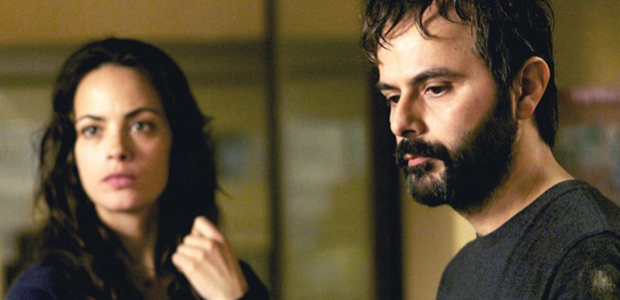
Since the Iranian writer-director knocked off a gigantic number of socks in 2011’s A Separation, the expectations, here, might be steeper than is necessarily fair — and yet, with Farhadi seemingly at the peak of his powers, don’t blame us too greatly. Perhaps it’s for the best, then, that descriptions of The Past would give the impression that he isn’t straying too far from the social issues his most recent picture — and, to some extent Fireworks Wednesday & About Elly — used as the gateway to bracing, good old fashioned human drama. Conveyed with his typically deft hand for such material, this should be one to savor. – Nick N.
Shield of Straw (Takashi Miike)
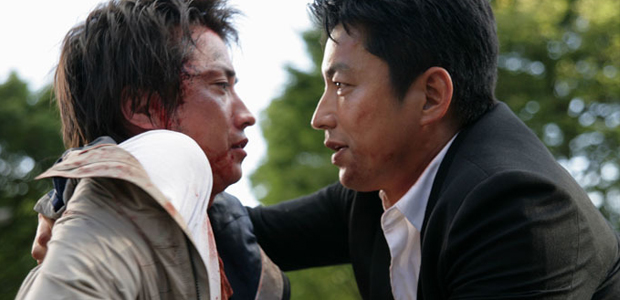
Takashi Miike is no stranger to genre bending, being one of the few filmmakers to have attempted nearly every style of storytelling. With each progressive film the prolific Japanese director crafts, his bizarre and brazen style becomes more and more unpredictable. He is also no stranger to the Cannes Film Festival, having shown his Hara-Kiri remake two years ago in the official competition and providing us with the high school anime inspired musical For Love’s Sake in the midnight slot last year. This year he returns to the spotlight of the main competition, with Straw Shield (Ware no Tate), a political thriller about four elite police officers forced to transport a high profile prisoner with an enormous bounty on his head that essentially makes him the target of the entire criminal population of Tokyo. Despite early negative reviews from it’s release in Japan a few weeks ago, there is sure to be a level of unpredictably in what sounds like a generic but entertaining premise. – Raffi A.
Venus In Fur (Roman Polanski)
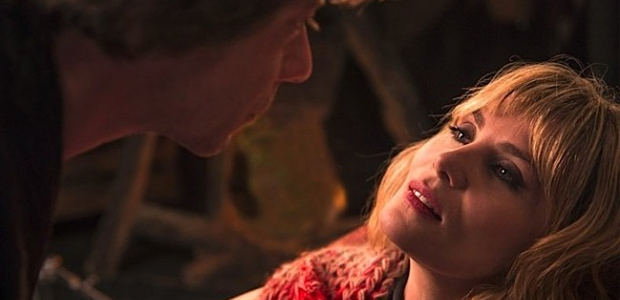
Seeming to maintain the spirit of his last outing, Roman Polanski has adapted a one-location, (essentially) real-time stage play about bad people doing bad things for their own gain. If you, like this writer, were keen on Carnage — we might be a thin number, in all honesty — promise is palpable right from the outset, though this has a chance of venturing further into his dark interests. While the filmmaker’s collaborations with his wife, Emmanuelle Seigner, have yielded… mixed results, the presence of Mathieu Amalric — playing a theater director who, as the story progresses, finds himself psychologically and sexually overpowered — just about compensates for thespian troubles. A corker is in store. – Nick N.
Cannes Film Festival 2013 kicks off on May 15th. Follow our complete coverage here.
What films are you most anticipating?

